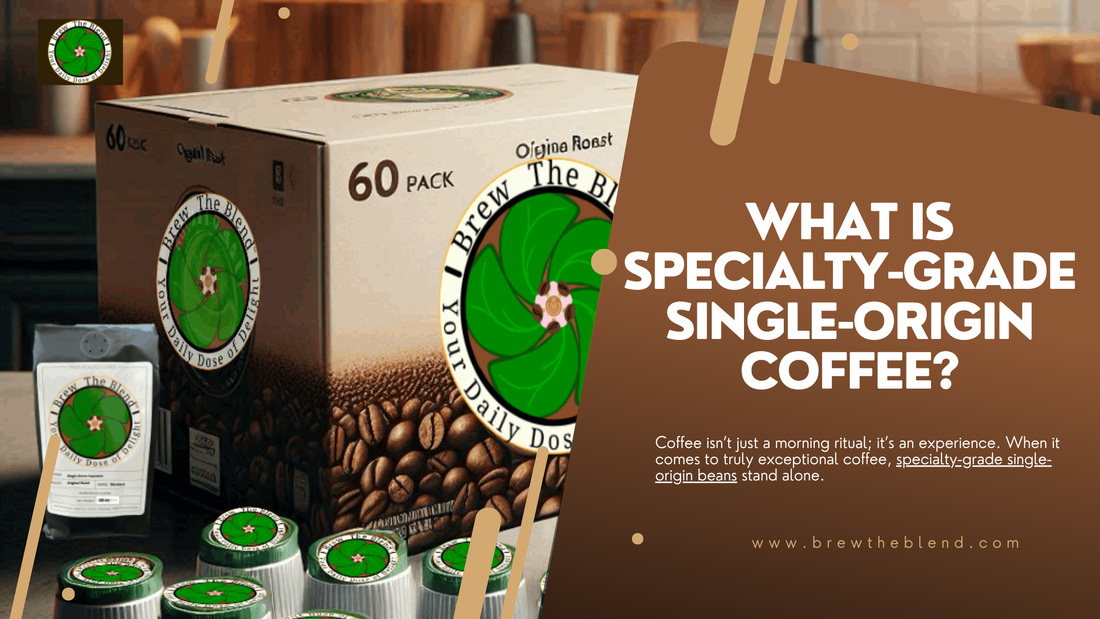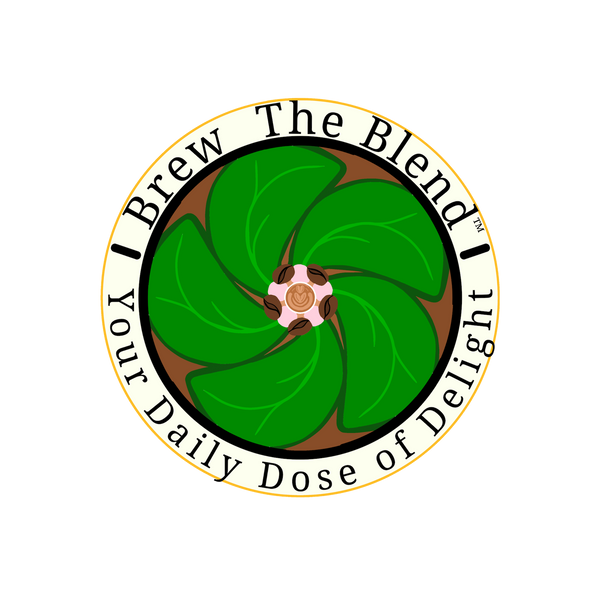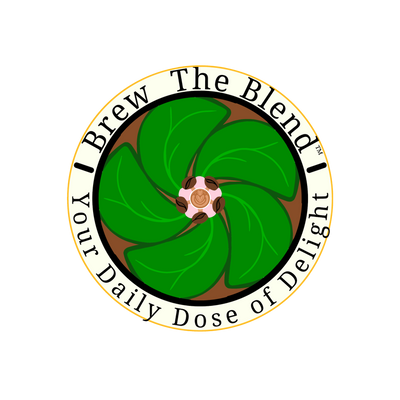
What Is Specialty-Grade Single-Origin Coffee?
Coffee isn’t just a morning ritual; it’s an experience. When it comes to truly exceptional coffee, specialty-grade single-origin beans stand alone. Grown in specific regions and carefully assessed for quality, this coffee delivers a pure, traceable flavor that showcases the unique climate, soil, and care invested in its cultivation.
It’s not about fancy names or flashy packaging; it’s about flavor that tells a story, one cup at a time. Let’s explore what makes this kind of coffee so special and why it’s worth the attention.
Specialty-Grade Coffee Definition
Before you sip, it's essential to understand what 'specialty-grade' means.
According to the Specialty Coffee Association (SCA), coffee must score 80 points or higher on a 100-point scale during a thorough cupping process to be considered "specialty-grade." This includes assessments of:
· Aroma
· Flavor clarity
· Acidity balance
· Body
· Sweetness
· Aftertaste
Only coffees that are virtually free of defects, meaning fewer than five secondary flaws per 300g, can qualify. That’s what sets specialty coffee grading apart from conventional or commodity coffee.
This grade guarantees consistency, quality, and high standards from seed to cup. And yes, coffee beans of single origin often top the specialty-grade lists because their purity and traceability give them an advantage.
Coffee Quality Grading
Coffee quality grading is a thorough process that categorizes coffee into three distinct grades: regular, premium, and specialty. It starts with grading green (unroasted) beans, focusing on:
· Bean size consistency
· Absence of defects (broken beans, insect damage)
· Uniform color and moisture content
Next, the beans are roasted and evaluated through “cupping”—a formal taste test where coffee professionals (Q graders) assess aroma, flavor clarity, balance, body, and sweetness.
It’s during this process that specialty-grade green coffee beans need to shine. If the beans don’t meet the strict standards, they’re downgraded—no matter how attractive the packaging appears.
How is specialty coffee graded?

If you’ve ever wondered, "How is specialty coffee graded?” the answer is all about precision and expertise.
Grading consists of several stages:
1. Visual Inspection – Checking for physical flaws in green coffee beans.
2. Moisture Testing – Ideal beans have a moisture content of 9–13%.
3. Roasting – Done to a light or medium profile to retain original flavors.
4. Cupping – Professional tasters score the coffee blind in 10 categories.
A score of 80–84.99 qualifies as “Very Good,” while 90+ earns the “Outstanding” label. Very few coffees reach that top category. If you're looking to buy single-origin coffee beans, this grading helps ensure you’re not just paying for a name—you’re paying for proven quality. Our specialty-grade coffee boasts an average cupping score of 85 or higher.
Also Read: How Many Calories Are in a Cup of Coffee?
SCA Coffee Standards
The SCA coffee standards are the globally accepted benchmark for what makes coffee a "specialty."
| Attribute | Standard |
|---|---|
| Minimum Score | 80/100 |
| Defects (Primary) | 0 |
| Defects (Secondary) | ≤5 per 300g |
| Moisture Content | 9–13% |
| Bean Uniformity | High |
| Roast Consistency | Balanced, no burn |
These standards allow roasters and importers to claim that a bean is of specialty grade. When browsing for "single-origin coffee buy" options, always check for SCA compliance or Q-grade certification for peace of mind.
High-Quality Coffee Beans
Want to spot high-quality coffee beans at a glance? Here’s what to look for:
· Even shape and size indicate consistent roasting
· Bright aroma – suggests freshness and complexity
· Glossy but not oily – a sign of proper roasting
· Clearly labeled origin and roast date
Also, trust your senses. If coffee tastes flat, bitter, or sour, it's probably not specialty-grade, or it’s not fresh.
If you love home roasting, opt for specialty-grade green coffee beans. They’re fresher, customizable, and genuinely satisfying.
Origin Traceability in Coffee
One major advantage of single-origin coffee is its traceability.
You can trace your beans from the soil where they were grown to the farm that processed them. This level of detail allows you to appreciate not just the flavor but also the human story behind your morning ritual.
For example, a cup of single-origin specialty coffee from Huehuetenango, Guatemala, might have notes of dark chocolate and orange blossom—and you’ll know the farm, the farmer, and even the elevation where it was grown.
That's the power of origin traceability in coffee!
Specialty vs Regular Coffee
Let’s discuss the key differences—specialty versus regular coffee and single-origin versus blend coffee.
| Feature | Specialty Coffee | Regular Coffee |
|---|---|---|
| Origin | Single, traceable | Mixed, often unknown |
| Grading | 80+ points, zero defects | No universal grading |
| Flavor Profile | Unique, complex | Simple, sometimes bitter |
| Ethics | Fair trade, eco-friendly | Often unsustainable |
| Price | Higher (but worth it) | Lower, mass-market |
The debate over single-origin versus blend coffee is another key topic. Blends combine beans from different regions to produce a consistent flavor, but they often sacrifice some of their uniqueness. Single-origin coffee offers bold, distinctive flavors closely tied to its place of origin.
Why Choose Brew the Blend Specialty-Grade Coffee?

At Brew the Blend, coffee isn't just brewed — it’s carefully crafted. Each bag starts with specialty-grade, single-origin beans sourced from some of the world’s top coffee-growing regions. What does that mean for you? Better taste, cleaner flavor, and a cup that’s anything but ordinary.
Try the Bourbon Amber—a bold, medium-dark roast with Guatemalan beans. It delivers innovative flavor with a smooth finish, making it perfect for espresso or pour-over.
Then there’s Blueberry Serenade Reserve, which truly lives up to its name. Made from 100% Ethiopian beans, this light-medium roast boasts natural notes of blueberry, floral hints, and a subtle touch of caramel sweetness. It’s perfect for slow mornings or whenever you want a cup with personality.
Ready for a better brew? Discover the rich, authentic flavor of specialty-grade coffee—shop with us today.
FAQs
Q. What does single-origin coffee mean?
When coffee is labeled as single-origin, it means all the beans in the bag come from the same place and are not blended with beans from other regions. This results in a more unique and often higher-quality flavor profile.
Q. Is single-origin coffee good for espresso?
Yes! While espresso is often made with blends for balance, single-origin coffee can produce incredibly expressive and flavorful espresso shots, especially when you're looking for clarity and character in each sip. Choose from medium to dark roasts for the best extraction.
Q. Where does single-origin coffee come from?
It originates from a specific location, such as a farm in Ethiopia, a cooperative in Colombia, or a micro-lot in Guatemala. The exact origin influences the coffee’s flavor, body, and aroma.
Q. Why is single-origin coffee better?
Many consider it superior due to its traceability, unique flavors, and support for ethical farming practices. With single-origin coffee, you get transparency in sourcing and a cleaner, more detailed cup.
Q. What is specialty-grade coffee?
Specialty-grade coffee is high-quality coffee with a score of 80 or above on the SCA’s 100-point scale. It is free from major flaws and evaluated for aroma, flavor, acidity, and overall balance, typically using specialty-grade green coffee beans.
Q. What is the difference between single-origin and specialty coffee?
Single-origin coffee refers to the source of the beans (from a single location), while specialty coffee refers to the quality and grading (with an 80+ SCA score). A coffee can be single origin but not specialty-grade, or it can be both, which is the case with the Single-Origin Specialty-Grade coffee at Brew the Blend.
Q. What is the difference between regular coffee and specialty coffee?
Regular coffee is mass-produced, often of lower quality, and less transparent regarding its origin. Specialty coffee is meticulously grown, harvested, and graded for quality. It offers more complex flavors and usually supports more sustainable practices.
Also, read more related blogs: What Are the Different Types of Coffee? A Complete Guide to Coffee Types
What Are the Different Types of Coffee? A Complete Guide to Coffee Types

